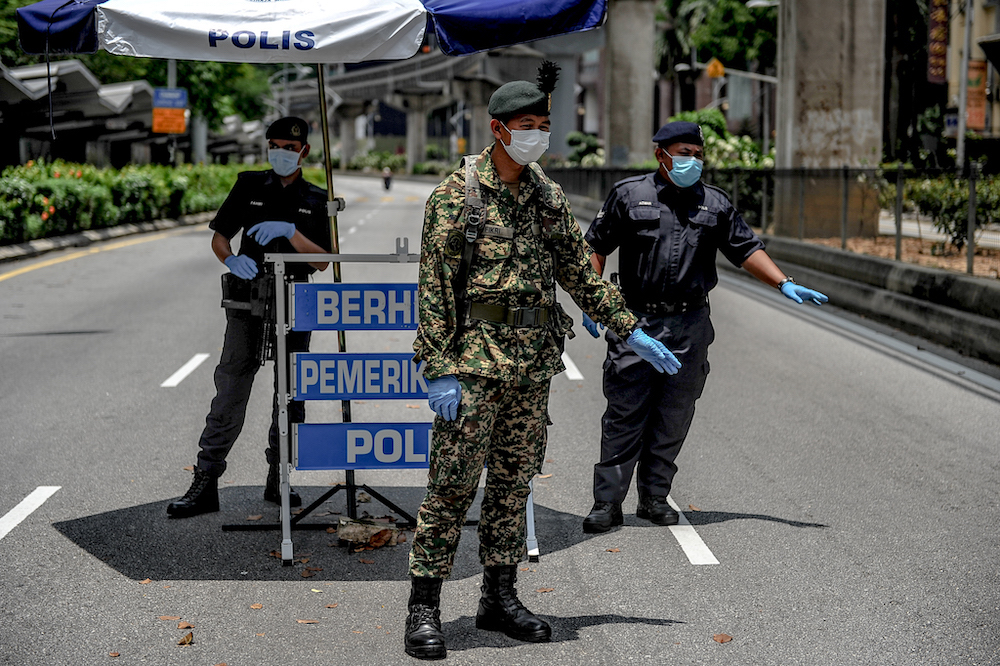KUALA LUMPUR, April 9 — Malaysians need to start practising new social norms even when the Covid-19 movement control order (MCO) is lifted.
One example cited by public health expert Dr M. Murallitharan was regarding shopping malls.
As these malls may become overwhelmed with visitors and shoppers after the MCO is lifted, he suggested malls to have a strategy in place to control the number of people within stores and the mall.
He said shopping time limits for visitors or having queue number mechanisms might be some effective measures for mall operators to control the number of people within their premises after the MCO.
“The idea that the day after the MCO things will go back to normal is false,” he added.
“This is a wrong narrative that everyone should be conscious about.
“The plan should really be to cautiously, gradually start with minimally operating industries and businesses, while the number of cases and clusters slowly decrease.”
Dr Murallitharan, who is also National Cancer Society Malaysia medical director, also urged Malaysians to be mindful of their behaviours and think critically before undertaking any social activities after the MCO is lifted.
“Always ask yourself if the activity you want to undertake is absolutely necessary or if it will put you and those around you at risk.
“If just one person is infected, hundreds more can be at risk.
“I think that is the expensive and bitter lesson we are learning as a society.
He also advised the public to be cautious at all times but avoid being over paranoid over the virus.
“Act sensibly in line with the health advice we are providing and obey the standard guidelines such as social distancing and hand hygiene.”
Dr Murallitharan, who is actively engaged in health system reforms in dealing with non-communicable diseases, also said that until there was a vaccine and cure for the disease, or the number of new cases have been lowered enough in the country, Malaysians may not be able to return to normalcy.
As major world events like Tokyo 2020 Summer Olympics and other exhibitions and conferences have been postponed, Dr Murallitharan urged the public to follow suit and defer their personal social events.
“Postpone weddings until the end of the year or run them with close family members at home.
“Social gatherings such as open houses should not happen at this time, while celebrations should be limited to small, personal events,” he said.
He also said that the country may still not be ready to return to normalcy adding that based on the number of daily new cases that have yet to go down to single or double digits, an extension of MCO might be necessary.
This, he said was because the number of daily new cases have yet to go down to single or double digits.
“As we continue to scale up testing, this will really be the accurate measure to show that the spread among the communities is decreasing,” added Dr Murallitharan.
According to him, the country will need some forms of controlled movement rules until after Hari Raya, which is expected to be on May 23.
He said the MCO had shown some positive results as it avoided the numbers to skyrocket like in the United States and Italy.
“If it (the MCO) had not been in place we would have a far larger number of cases.
“However, has (it) been in place long enough? From a health perspective, the answer is perhaps not enough yet,” he said.
Dr Murallitharan also admitted that the pandemic is not only a health crisis but an economic one as the MCO has impacted people’s productivity, while production and business activities have decreased to negligible amounts.
However, he said without an MCO in place, the implications could cost lives.
“With a wider community spread, we can see the effects as other countries have seen including the US and Italy,” he said, referring to the devastating outbreak situation in both countries which have seen a drastic sudden spike in the number of new cases and deaths.






















